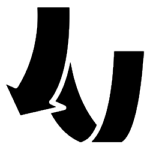5. Precision Searching

Effective searching takes precision. This section shows you how to perform several steps to make your searching more precise—you’ll turn up more sources that are useful to you and perhaps, sources that may be even crucial to your research question.
You’ve probably been searching in a more casual way for years and may wonder: Is going to the trouble of precision searching actually worth it?
Yes, definitely, for searches that are important to you! You’re in competition with many people who are working to be as skilled as they can be. So you should use of these steps for course assignments and for information tasks you do on the job. With other tasks and searches, precision searching may be less important.
Search Strategy
This information on precision searching is based on how search tools such as Google and specialized databases operate. If you’ve been more casual in your searching practices, some of these steps may be new to you.
Starting with a research question helps you figure out precisely what you’re looking for. Next, you’ll need the most effective set of search terms – starting from main concepts and then identifying and alternate between related and terms. Those search terms need to be arranged in the most effective way as search statements, which you actually type into a search box.

An important thing to remember is that searching is an iterative process: we try search statements, take a look at what we found and, if the results weren’t good enough, edit our search statements and search again—often multiple times. Most of the time, the first statements we try are not the best, even though Google or another search tool we’re using may give us many results.
It pays to search further for the sources that will help you the most. Be picky.
